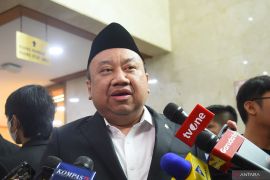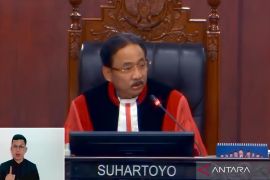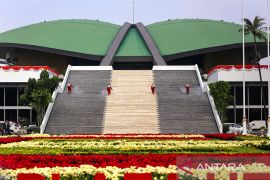The court ruled that Article 414 (1) of the Election Law regulating the parliamentary threshold remains valid for the 2024 Parliamentary Election, while the conditionally constitutional doctrine will be applied for 2029 Parliamentary Election and beyond as.long as the parliamentary threshold is amended to meet the MK ruling.
The MK ruling was announced by Chief Justice Suhartoyo at the hearing session observed online here on Thursday (February 29).
The Constitutional Court ruled in favour of the plaintiff, Indonesia elections watchdog Perludem (Association for Elections and Democracy), that requested for the judicial review of the 4-per cent parliamentary threshold.
In this regard, Perludem requested that the norm of article containing the phrase "political parties participating in elections must meet the parliamentary threshold of at least four percent of valid national votes to enable them to engage in determining the number of seats for lawmakers at the House of Representatives (DPR)" be amended.
According to Justice Saldi Isra, in his legal consideration that he read in the session, the court found no rational basis that the parliamentary threshold should be determined at four percent of valid national votes, as stated by the election law.
The threshold also affects the number of votes that can be converted to parliamentary seats. The justice pointed out that in the 2004 election, 18 per cent of valid votes -- equal to 19.04 million votes -- were spoiled as they could not be converted into seats.
Besides infringing the people's voting rights, the parliamentary threshold also infringes the candidates' rights since they may not get their parliament seats despite winning most votes if their party failed to pass the threshold, Isra explained.
"Hence, MK concurred to the plaintiff's argument, which in essence stated that the parliamentary threshold and its percentage are not formulated with adequate methodology and argument basis," the justice stated.
However, the Constitutional Court rejected Perludem's argument for the parliamentary threshold to be determined by the formulation proposed by them. The court stated that the authority to set the formulation belongs to the lawmakers, not the court.
Related news: Two new political parties potential to cross parliamentary threshold
Related news: Ideal parliamentary threshold for 2014 over 5 percent: Observer
Translator: Nadia Putri R, Nabil Ihsan
Editor: Rahmad Nasution
Copyright © ANTARA 2024












